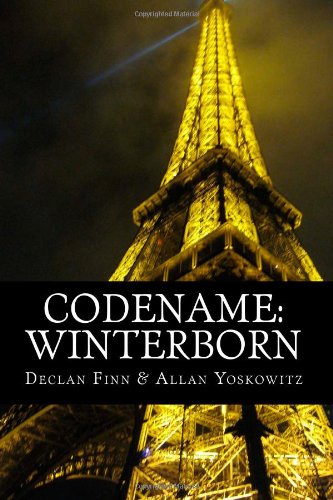After I read her novel Stealing Jenny, Ellen Gable asked for some reviews about her next novel, A Subtle Grace. I jumped at the chance. Stealing Jenny was a great thriller with a singular oddity -- an unrepentant villain. We don't get many of those.
 And then there's A Subtle Grace, whose Amazon flap copy reads as follows
And then there's A Subtle Grace, whose Amazon flap copy reads as follows
1896, Philadelphia. In this sequel to "In Name Only" (2009, FQP), "A Subtle Grace" continues the story of the wealthy and unconventional O’Donovan Family as they approach the dawn of a new century.
At 19, Kathleen (oldest daughter) is unmarried with no prospects. Fearing the lonely fate of an old maid, her impatience leads to an infatuation with the first man who shows interest. The suave, handsome son of the local police chief seems a perfect match. But will her impulsive manner prevent her from recognizing her true beloved? A disturbing turn of events brings a dark shadow that threatens the life-long happiness she desires.
Dr. Luke Peterson (the family’s new physician) also makes quite an impression on Kathleen. His affection for her leads him to startling revelations: about Kathleen, about his practice and, most importantly, about himself.
Will (oldest son) believes God may be calling him to a religious vocation. Eventually, he discovers the hidden circumstances of his humble beginnings compelling him to embark on a pilgrimage to Rome.
(Note: Although "A Subtle Grace" is a sequel, it can be read as a stand alone book, independently of the first book in the series.)
A Subtle Grace is not my type
of book. It is sappy, the overall plot is fairly predictable (when
the plot begins at all) and the pace is so laid back and leisurely, I
could skip pages at a time and not miss any part of the events, the
character development, or anything of note. In fact, once I did
start skipping parts, I didn’t have to backtrack a single time.
That aside, on its own terms, A Subtle Grace is a solid novel, in a traditional sense. Around
my household, growing up, it out be referred to as a “novel”
novel. As a period romance, there are parts of it that are set up
akin to a Tom Clancy novel, with several threads that are seemingly
unrelated, but interconnected later one. The characters are usually
interesting, the most interesting one being the town doctor. Of
course, they’re very much like real people – meaning that I
wanted to take some of them off to one side and smack some sense into
them, like I do with most people in real life.
Also, we have a proper villain of the
piece, who you spend a good portion of the book just waiting to see
again – mostly because you want to see a stake driven through his
heart. Unlike the typical “villain you love to hate,” like a
Loki, or the villain of House of Cards, this guy is unvarnished evil,
and you just wait for him to be fed to a wood chipper. Having read
Ellen Gable’s thriller Stealing Jenny, I can say for
certainly that she specializes in villains who are particularly
obsessed, evil bastards.
This also has some nice little historical touches, especially with technology, like installing phones or the hotel with a lighting
system so new, it has to post letters to inform the guests that “This
hotel runs on electricity. Please to not attempt to take a match to
the light bulbs. There’s a switch if you want light, thank you.”
Addressing real problems with this is a
shorter matter – “this is not my sort of book” does not
constitute a real problem. Let’s face it, a slightly formulaic plot
and a leisurely pace is most likely not a problem for someone who’s
going to pick up a period piece romance, and if it is, they’re
probably in the wrong fan base.
Nitpick 1: There is a subplot about our
heroine’s brother, and that being a bastard is a problem for
joining the priesthood, but the problem is never explained, merely
dismissed as part of cannon law. The book spent pages over the course
of the book explaining some basic aspects of Catholicism, it could
have spent a few lines fleshing this out.
Nitpick 2: a doctor, at one part of the
book, is held at gunpoint, and he uses the Hippocratic oath as a
reason to not gut the man with a scalpel. Sorry, but self-defense is
not prohibited by the Hippocratic oath.
Nitpick 3: The ellipses in the dialogue
are oddly placed at times. A small matter, but crops up quite often.
THE Problem? This book was about 70
pages too long. And I don't mean the leisurely pace of the story; by
the time I had gotten to around page 300, I had gotten used to that. I
mean that there were several points this book could have
stopped, and the final confrontation was drawn out to beyond my
levels of tolerance. There was a perfect buildup to a final
confrontation, which was a complete fake-out. That wouldn't have
been a problem, if it weren't followed by a apparently contrived
mechanism that seemed to be designed for the sole purpose of extending the story for no real reason. I liked it, but not so much that I had to have more of it.
End rating: 3/5 stars -- probably 4/5 if you're a fan of the genre. If you are not a fan of the genre, read Stealing Jenny.


